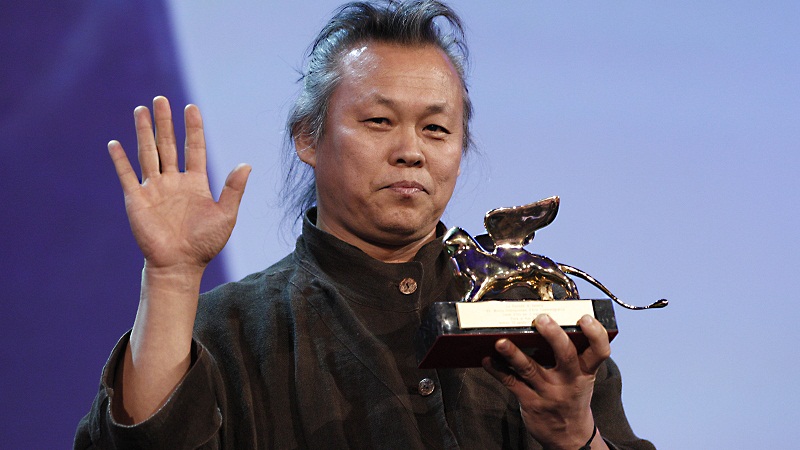
Director Kim Ki-duk with his Golden Lion best film award for ‘Pieta’ during the 69th edition of the Venice Film Festival in Venice, Italy, Saturday, Sept. 8, 2012. AP/Andrew Medichini
VENICE, Italy—South Korean director Kim Ki-duk told AFP in an interview before winning best movie at the Venice festival on Saturday that his “Pieta” was a new start in his unusual career that began with no film training.
Speaking at the seaside Excelsior Hotel, the pony-tailed Kim said he saw “Pieta” as one of three films along with “Samaritan Girl” and “Amen” that represented the incarnation in film of his youthful ambition to be a preacher.
The 51-year-old was once a manual laborer in one of the clapped-out workshops in Seoul that are so starkly portrayed in “Pieta”. He also used to be a street painter in Paris and served as an officer in the Korean military.
“I always concentrate on respecting human beings and their lives and the meaning within their lives, and I believe that is something people around the world can appreciate,” he said, speaking in Korean with an English translation.
Kim has a personable character far removed from the often dark, twisted protagonists of his films. Even at an auteur-filled film festival he cut an eccentric figure with a military jacket, baggy trousers and red-laced boots.
He surprised and delighted an audience used to platitudes at the award ceremony on Saturday with his rendition of the Korean folk song “Arirang”.
“It’s been three years since I’ve done a feature film and for me this is a new start,” said Kim, who is no stranger to Venice where he won best director in 2004 for “Bin-jip” (“3-iron”) about a young drifter and an abused housewife.
Kim’s career as a director started out with his low-budget “Crocodile” in 1996 which received sensational reviews with a tale about a man living on the edge of the Han River in Seoul who saves a woman trying to commit suicide.
He then proceeds to rape and abuse her until an odd relationship develops.
Kim agreed that some of the explicit violence that he has become notorious for was toned down in “Pieta”, explaining that this was an artistic choice made so as not to distract audiences from the wider meaning of a complex film.
“I believe if I show the violent scenes on screen explicitly it would be more of a filter. I want to focus on the implications of the violence…. I realize the audiences through their imagination can feel it more,” he said.
Asked about his religious background, which is strongly felt in a film that ends with the hymn “Kyrie, Eleison”, he said: “Yes I did study to be a preacher but I didn’t finish. Through being a filmmaker… I tried to realize all this.”
“I believe that audiences who see the film will question capitalist society. They need to change themselves and gradually there will be movement,” he said.
The director also revealed that he draws a lot of inspiration from domestic and foreign cable news channels—both in terms of subjects and images.
Asked about his future plans, Kim said he was planning another film about “how people eat each other up because of money,” and a second one about “fabulous people… celebrities and sports stars and how they are viewed.”
Kim smiled: “It’s going to be very interesting!”